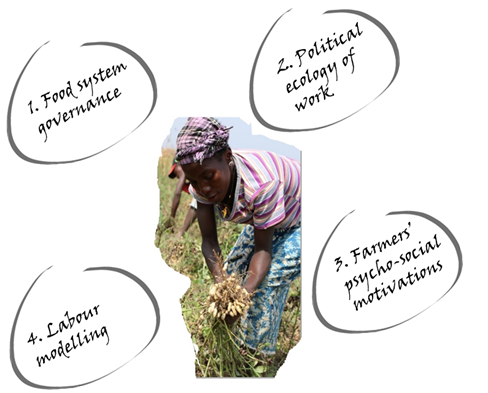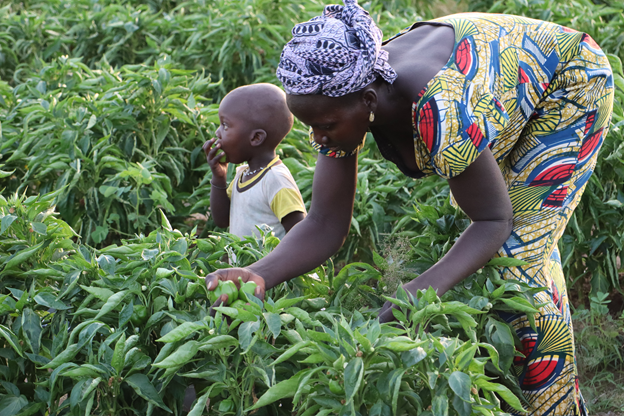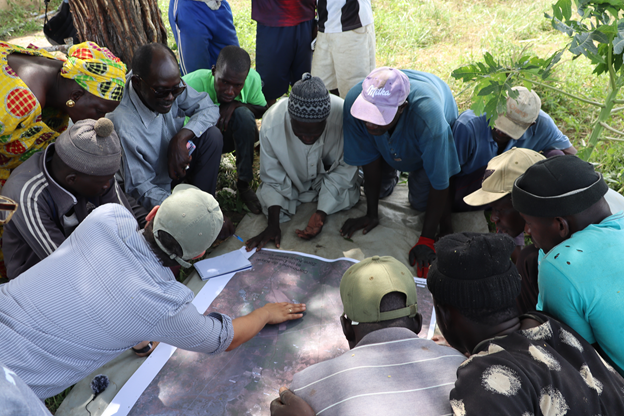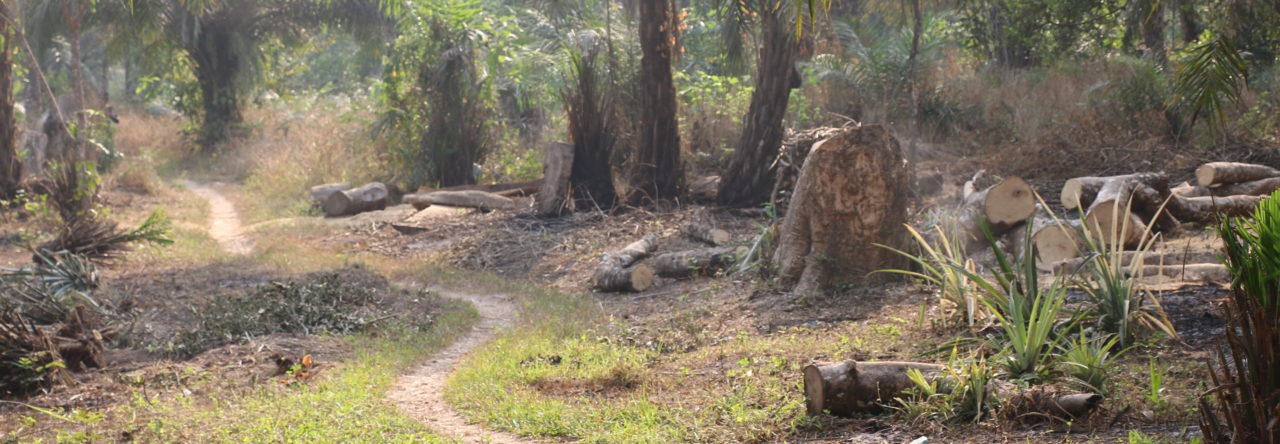Rural areas in sub-Saharan Africa are facing a major social and ecological crisis. It is particularly true for food systems that are in a critical situation due to ecological degradation and unbridle neo-liberal policies. Facing these challenges, a large-scale transition to agroecological farming is increasingly presented as a potential solution as it leads to more sustainable agricultural practices, farm resilience and improve farmers’ working and living conditions. AgroWork is a research project aiming at understanding the enabling and limiting factors of a transition to agroecological farming systems in Senegal, with a particular focus on human work. Researchers use various lens from social, political and earth system sciences. The general framework of Socio-Technical Transition studies (STT) is combined with other approaches such as environmental justice, political ecology, environmental socio-anthropology, ecological economics and physical geography. Most case studies take place in the Niayes regions Northern Dakar, an areas dedicated to horticultural production. The area, that used to play an important role for food provision in the entire country, is highly affected by climate change, urban sprawl and unsustainable use of natural resources.

1. Food system governance: lock-in and leverage points for just transitions
Food systems are not ‘components’ of given societies but reflect the entire social system. Former colonies in sub-Saharan Africa have maintained the stigma of Northern control. Cash crops monoculture, low wages and dependence to foreign inputs are combined with consumption habits reflecting decades of economic and symbolic influence from abroad. In Senegal, as in other Sahelian countries, the narrative of food security is, since the structural adjustment, supporting a liberalization of the food sector characterized by massive import of staple crops, large-scale land acquisition by foreign companies or subsidies to agrochemical fertilizers. In recent years however, the food security narrative is being challenged by agroecological coalitions led by NGOs and farmers’ organizations with the aim of making the transition socially and environmental ‘just’. Agroecological coalitions can be considered as a ‘niches’ of transformation in relation to the broader agro-food regime still promoted by the government, private trusts and international lobbies. The interaction between the niche and the regime is one of the core focus of the research to better understand under which institutional changes a transition to agroecology is possible.
2. Political ecology of work: Who controls labour in agroecological farming ?
An originality of the AgroWork research project is to study agrarian transitions from the central point of view of labour relations. Researchers mainly adopt a “political ecology of work” that can be defined as the study of power relations established in and around labour processes in link with environmental issues and ‘Nature’ (Bottazzi, 2019). Agroecological farming has been presented as potentially more ‘fulfilling’ in terms of human needs, satisfactions and incomes. Some experts also argue that agroecology could help farmers emancipating from external dependency and support their autonomy. In fact, agroecological farming is associated to increasing labour inputs as it requires more manual weeding and self-made treatment and fertilizers. Additional labour is likely subject to additional controls within what can be considered various ‘modes of production’. As for example, agroecological pilot programmes remain controled by a network of NGOs and international organizations mainly dependent from the Northern countries. Challenges of increasing farmers’ autonomy and emancipation from external form of labour control are not determined by technical transformations but by the mobilization capacity of farmers’ through their organization. The researchers also explore the question of the various meanings and perception of agricultural work according to different social statute such as gender, age, hierarchy or ethnicity.

3. Farmers’ motivations to adopt: a psycho-sociological approach
Another challenging question for agrarian transition studies relates to farmers’ psycho-sociological motivations of adopting a given behavior. Although agroecological practices are perceived by farmers to be beneficial in terms of human health, soil conservation and the durability of products, their adoption is determined by farmers’ perceptions in three different dimensions:
- Their ability (i.e. access to means of production);
- Their opportunities (i.e. access to preferential market);
- Their legitimacy (i.e. social norms supporting organic products).
Researchers formulate the hypothesis that labour conditions are at the interface of these three dimension which share in return farmers’ willingness to adopt. Farmers generally seek to minimize labour effort and dedicates to other incomes generating activities. Sharecropping is used in this sense to allow small land-owners relying on external labour force, while keeping a direct benefit from their land. Organic certification norms recently adopted by national farmers’ organizations tend to restrict this practices by arguing the lack of effective control of farmers’ standards fulfilment. Farmers’ motivations to adopt agroecology are therefore complex processes of estimating the costs and benefits of changing modes of production in a limited information system.

4. Labour modelling: can agroecological transition mitigate the labour crisis ?
Another key question for the project is to know how labour demand and outcomes varies according to the different models of production such as small-scale agroecological farming or industrial conventional farming. Responding to this question could help better understand the potential of agroecology to provide an alternative rural development pathway by combining rural employment and sustainable food production. Based on multiple data sources such as existing and primary data, (i.e. survey, expert interview, participatory modelling) this module is centered on quantifying the work load (or labour demand) in different types of farming systems currently present in the Niayes areas of Senegal. System dynamic modelling is used to calculate interactions between core variables such as water consumption, soil fertility, biomass use and labour demand. It finally helps estimate scenarios of long-term transformations that are shared and commented with local stakeholders and put in the broader perspective of ‘bioregional’ development.
5. AgroWork: The team

6. Further informations
Main research institutions: The research is co-hosted at the Institute of Geography (University of Bern), and the Centre for Development and Environment (University of Bern)
Duration : 2018 – 2022 (possibly extended to 2024)
Funding : Swiss National Science Foundation – Professorship Grant
Partners: Initiative Prospective Agricole (Senegal), Université Cheikh Anta Diop Dakar (Senegal)
Contact: patrick.bottazzi@giub.unibe.ch
![]()
